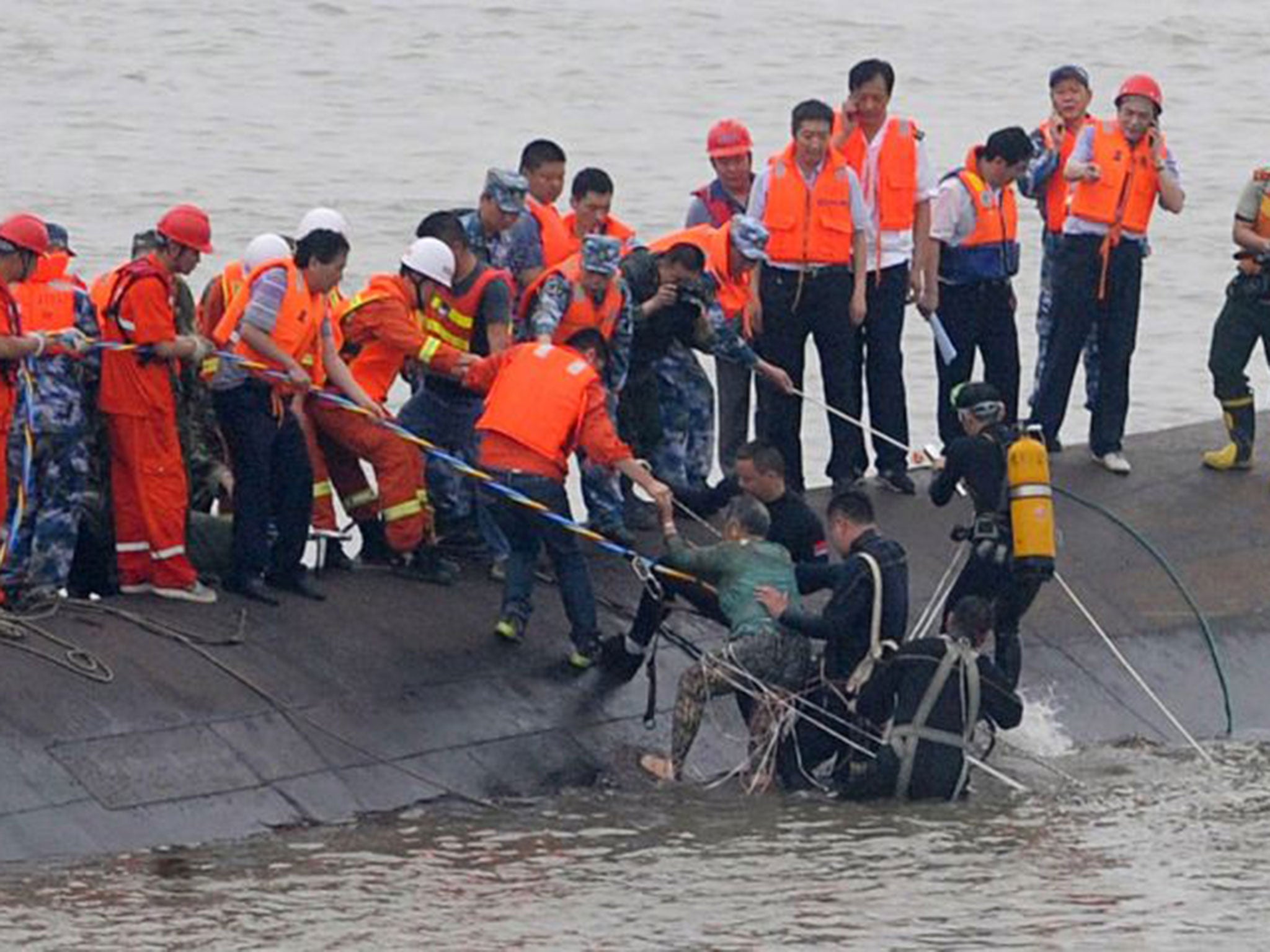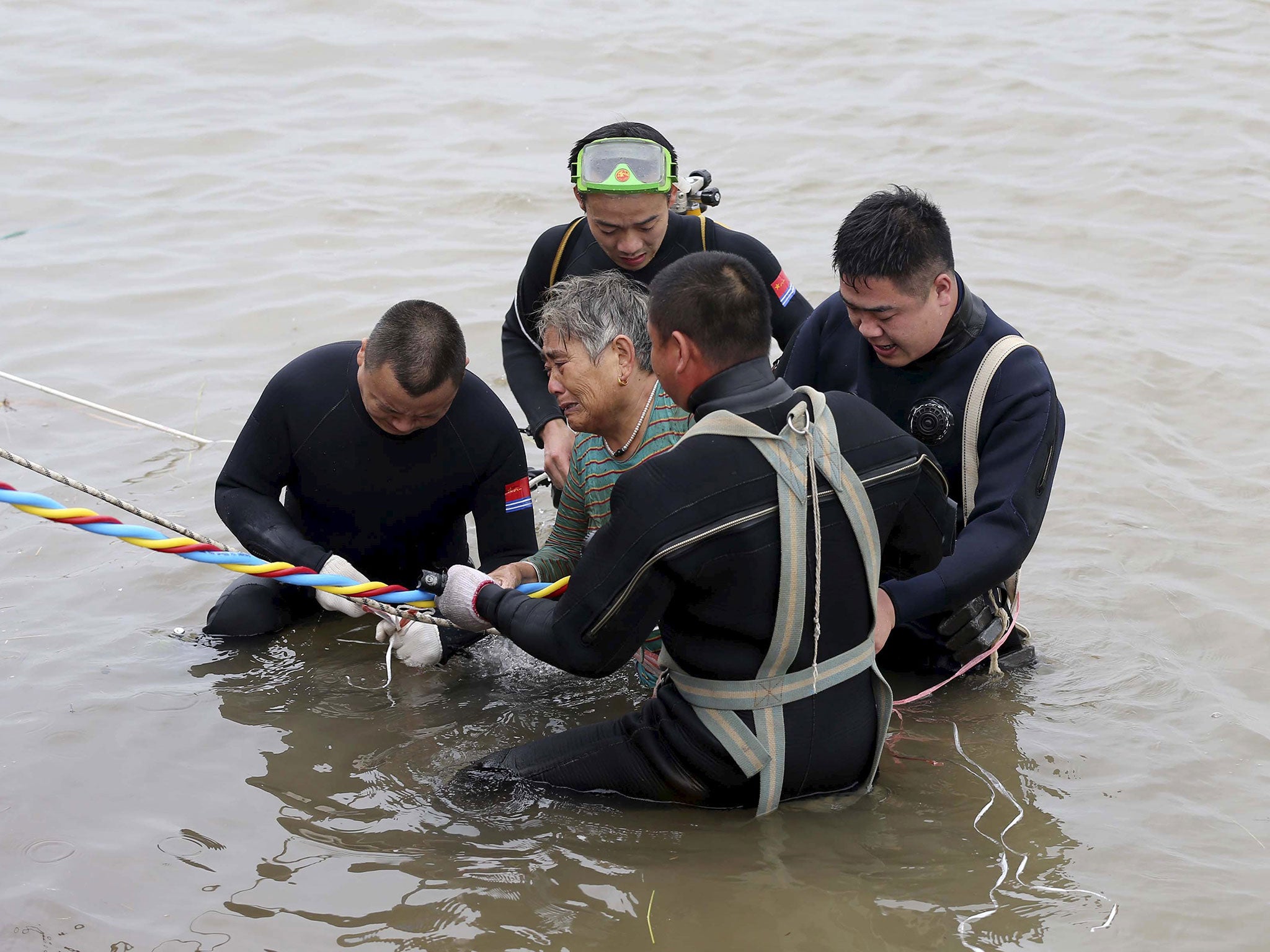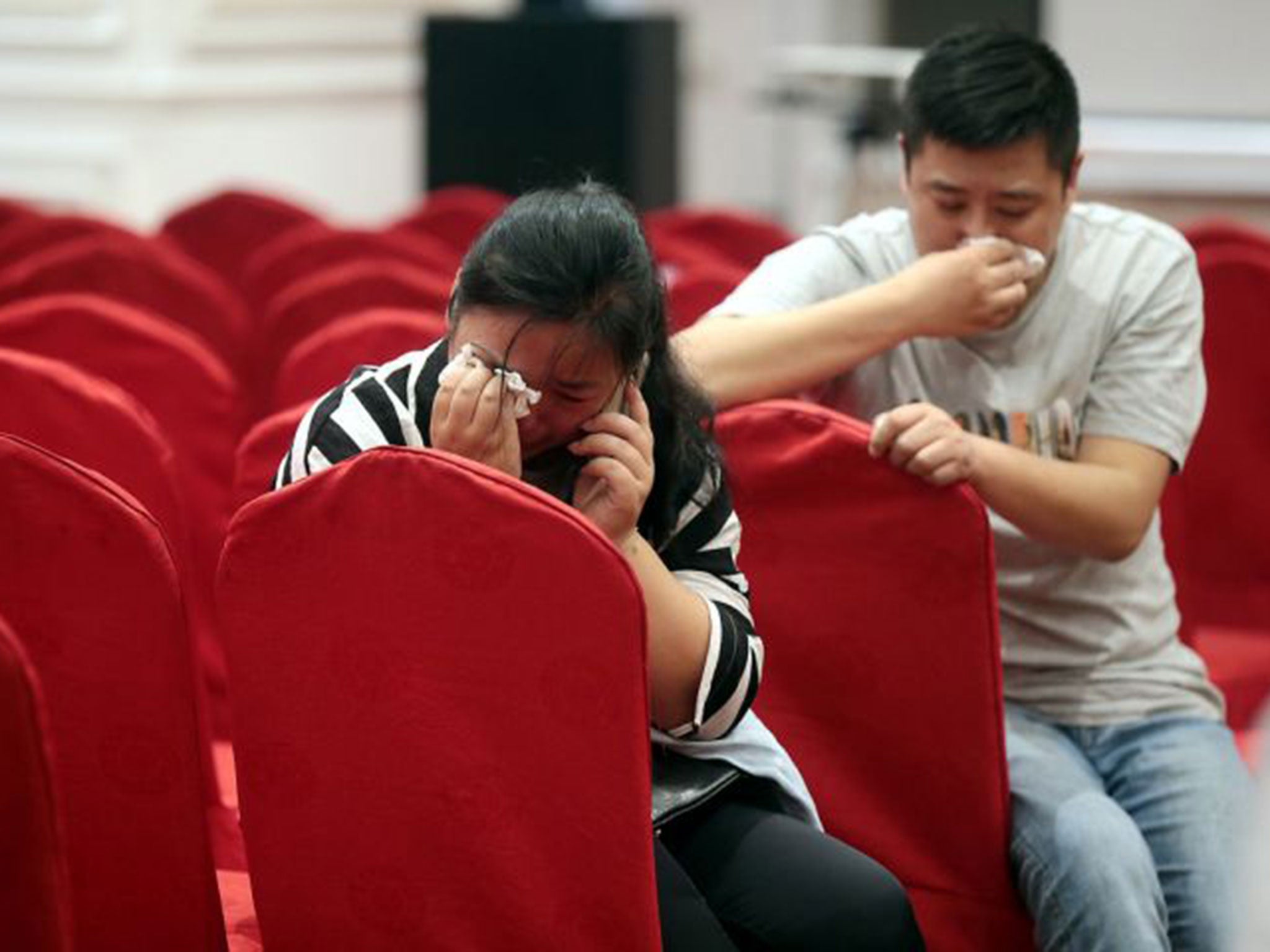China ferry disaster: Rescuers facing desperate battle to save hundreds trapped in capsized craft
The ship's captain and chief engineer were among the survivors and were detained by police shortly after they reached safety

Your support helps us to tell the story
From reproductive rights to climate change to Big Tech, The Independent is on the ground when the story is developing. Whether it's investigating the financials of Elon Musk's pro-Trump PAC or producing our latest documentary, 'The A Word', which shines a light on the American women fighting for reproductive rights, we know how important it is to parse out the facts from the messaging.
At such a critical moment in US history, we need reporters on the ground. Your donation allows us to keep sending journalists to speak to both sides of the story.
The Independent is trusted by Americans across the entire political spectrum. And unlike many other quality news outlets, we choose not to lock Americans out of our reporting and analysis with paywalls. We believe quality journalism should be available to everyone, paid for by those who can afford it.
Your support makes all the difference.Hundreds of people remain missing, feared dead, in the waters of the Yangtze river in China after a cruise ship with 458 people on board capsized.
Only around 13 of the people on board, many of whom were elderly, had been rescued from the Eastern Star, which had been travelling from Nanjing to the south-west city of Chongqing.
The ship’s captain and chief engineer were among the survivors and were detained by police shortly after they reached safety. They said that the ship had been hit by a cyclone and sank at about 9.30pm on Monday. According to Chinese state radio the ship sank within two minutes and a distress signal was not sent out. The alarm was only raised after seven survivors swam to shore.

The captain and chief engineer’s relatively prompt escape from the doomed ship invoked anger from people who believed they had loved ones on board.
Huang Yan, a 49-year-old accountant based in Shanghai, believed that her husband and his father were on the ship.
She said: “Why did the captain leave the ship while the passengers were still missing? We want the government to release the name list to see who was on the boat.”
The Chinese Premier, Li Keqiang, was quick to head to the scene of the disaster, with state media running pictures and reports of him assertively managing the rescue effort.
According to the state-sponsored news agency, Xinhua, President Xi Jinping ordered an “all-out rescue effort”. More than 50 boats and over 3,000 people were involved in the rescue.
At least five bodies have been recovered, state television reported.
One rescuer on top of the ship had communicated with passengers trapped beneath him by hitting a hammer on the hull and listening to noises made in reply. “Rescuers knocked on the ship and received responses,” the Hubei Daily reported. Footage also showed rescuers trying to cut through the hull with an angle grinder.
A symbol of hope amid the chaos came in the form of the rescue of a 65 year-old female passenger who was helped to safety by divers. The divers brought breathing apparatus to her within the upturned ship and spent five minutes teaching her how to use them before guiding her to safety.
Chen Shoumin, the Hubei military region commander, said: “That old woman had a very strong will and learnt very fast, and after 20 minutes she surfaced to the water and was rescued.

“We will do everything we can to rescue everyone trapped in there, no matter they’re still alive or not and we will treat them as our own families.”
Chinese journalists were reportedly kept away from the site and were told that they must relay state media reports of the incident. In Shanghai clashes between authorities and those who believed they had family members on board flared.
Huang Jing, who believed that his brother and father-in-law were on the sunken ship, was one of those who stormed the offices of the Shanghai Xiehe Tourism Agency, the company many passengers booked the cruise with.
A passenger list circulating on Chinese social media only included passengers who had bought travel insurance.
Huang was kept away from the media but told Associated Press by mobile phone: “The government must meet its responsibility.
“We need to learn what happened to our loved ones.”
Subscribe to Independent Premium to bookmark this article
Want to bookmark your favourite articles and stories to read or reference later? Start your Independent Premium subscription today.
Join our commenting forum
Join thought-provoking conversations, follow other Independent readers and see their replies
Comments